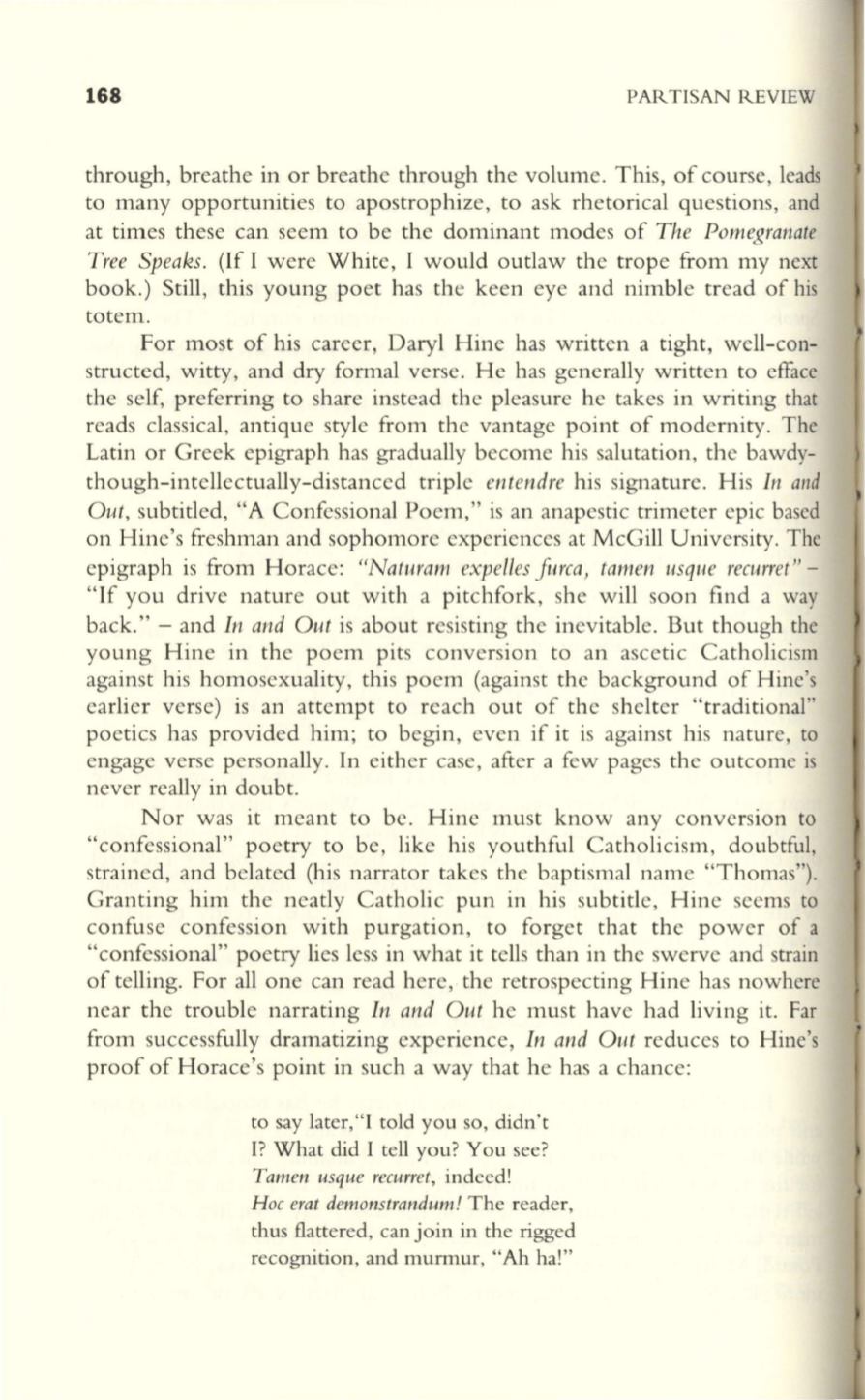
168
PARTISAN REVIEW
through, breathe in or breathe through the volume. This, of course, leads
to many opportunities to apostrophize, to ask rhetorical questions, and
at times these can seem to be the dominant modes of
The Pomegranate
Tree Speaks.
(If I were White, I would outlaw the trope from my next
book.) Still, this young poet has tht: keen eye and nimble tread of his
totem.
For most of hi career, Daryl Hine has written a tight, well-con–
structed, witty, and dry formal verse. He has generally written to efface
the self, preferring to share instead the pleasure he takes in writing that
reads classical, antique style from the vantage point of modernity. The
Latin or Greek epigraph has gradually become his salutation, the bawdy–
though-intellectually-distanced triple
entendre
his signature. His
In and
Out,
subtitled, "A Confessional Poem," is an anapestic trimeter epic based
on Hine's freshman and sophomore experiences at McGill University. The
epigraph is from Horace:
"Naturam expelles jr4rca, tamen usque recurret"–
"If you drive nature out with a pitchfork, she will soon find a way
back." - and
In and Out
is about resisting the inevitable. But though the
young Hine in the poem pits conversion to an ascetic Catholicism
against his homosexuality, this poem (against the background of Hine's
earlier verse) is an attempt to reach out of the shelter "traditional"
poetics has provided him; to begin, even if it is against his nature, to
engage verse personally. In either case, after a few pages the outcome is
never really in doubt.
Nor was it meant to be. Hine must know any conversion to
"confessional" poetry to be, like his youthful Catholicism, doubtful,
strained, and belated (his narrator takes the baptismal name "Thomas").
Granting him the neatly Catholic pun in his subtitle, Hine seems to
confuse confession with purgation, to forget that the power of a
"confessional" poetry lies less in what it tells than in the swerve and strain
of telling. For all one can read here, the retrospecting Hine has nowhere
near the trouble narrating
In and Out
he must have had living it. Far
from successfully dramatizing experience,
In and Out
reduces to Hine's
proof of Horace's point in such a way that he has a chance:
to say later,"I told you so, didn't
I? What did 1 tell you? You see?
Tamen usque recurret,
indeed!
Hoc erat demonstrandum!
The
reader,
thus flattered, can join in the rigged
recognition, and murmur, "Ah ha!"


